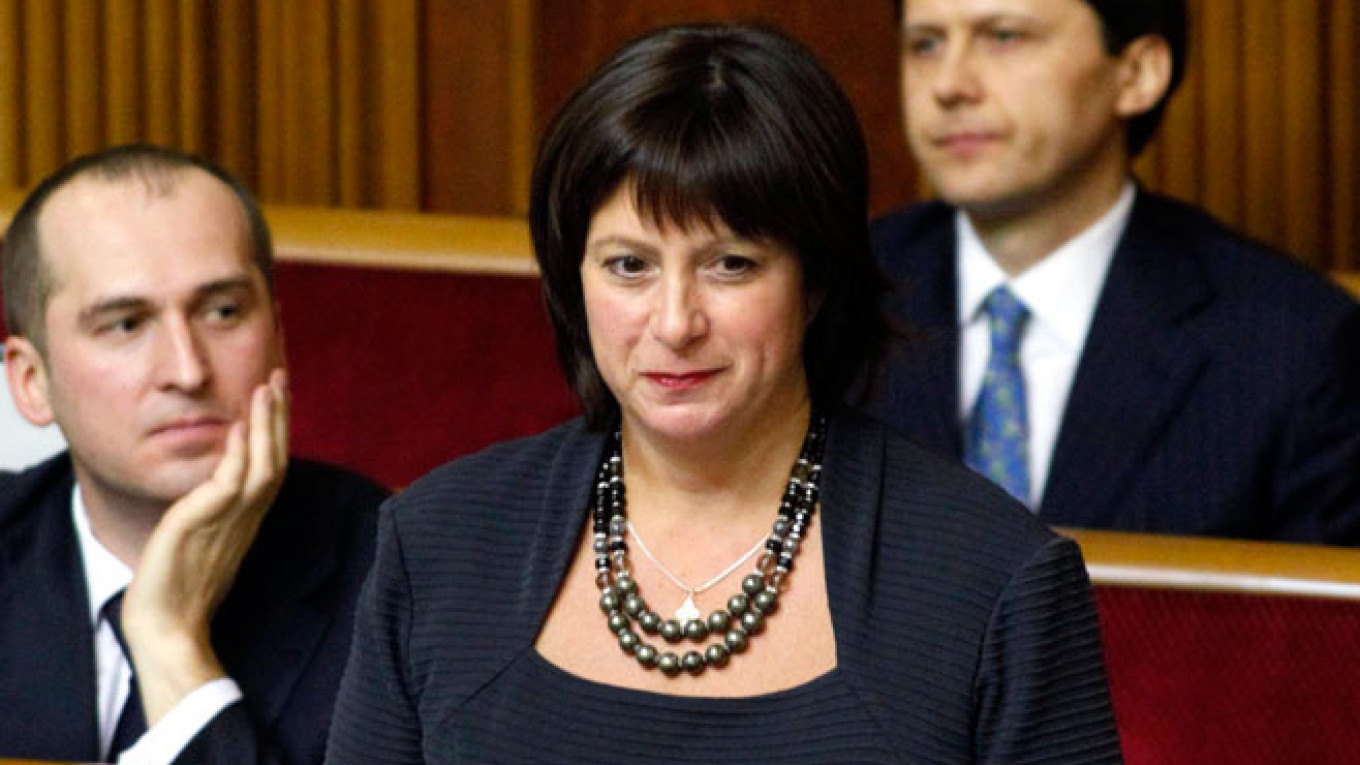External pressure is the best way to reduce corruption. However, since Ukraine has no realistic prospect of joining the European Union in the near future, Ukrainian President Petro Poroshenko had to find a substitute if he hoped to reduce his country's extensive graft. Accordingly, he appointed three prominent foreigners to his Cabinet.
The new members are Economy Minister Aivaras Abromavicius (Lithuania), Finance Minister Natalia Jaresko (United States) and Health Minister Aleksandr Kvitashvili (Georgia). They have promised radical reform.
External influence is important because it reduces the uncertainty and debate over what institutions are needed to reform the economy and reduce corruption opportunities. The necessary reforms are dictated from outside and have to be accepted by all powerful domestic groups, so there is little room for internal backtracking.
Countries that are not under external pressure to reform often end up stuck in a situation where no change is likely because bureaucrats and citizens alike expect the bribing culture to continue. The consequence is that people have low expectations for achieving a different way of living.
Placing the foreigners into the Cabinet should break these patterns. At the highest level, it signals to both bureaucrats and citizens that previous expectations will not stand. In the effort to change overall expectations, Ukraine's unusual personnel policy will complement the efforts to arrest the most egregious bribe-takers and educational initiatives aimed at weaning the population away from relying on graft.
To be effective against entrenched bureaucrats, the foreigners need to stimulate a response from below in the form of direct action by members of civil society. Ukrainians have already demonstrated their drive to put their country on a new track. Similar passion has produced measurable results in other contexts.
In India, a civil society movement known as the 5th Pillar successfully changed expectations among bureaucrats and ordinary citizens. Citizens gave a "zero-rupee" note made by 5th Pillar to corrupt officials instead of a bribe in order to signal to officials that people will not pay bribes and to inform them about the organization and its mission. Officials were often shocked to receive such strong pushback and performed the necessary services without a bribe.
As the movement caught on, some officials even began to place the zero-rupee notes in their window to demonstrate their adherence to the group's principles.
Beyond these efforts, 5th Pillar also conducts educational workshops for secondary school and university students aimed at changing their expectations about corruption. The 5th Pillar organization believes the key to eliminating such illicit activities is ensuring that younger generations do not participate in corruption within the bureaucracy or expect officials to seek bribes.
Ukraine may achieve similar results through the potent cocktail of President Poroshenko's recent Cabinet appointees, the government's new reform plans, and a popular push to reduce corruption.
Combining the pressure from above exerted by the newly formed government and the strong popular will from below should establish compelling incentives for bureaucrats and citizens to change the way that they interact with each other. Ukraine's relatively open press and history of free elections will augment the impact of these reforms.
Of course, it is too soon to tell what the ultimate result will be, but by bringing foreigners into his government, Poroshenko has made a realistic step toward adopting meaningful reforms.
A Message from The Moscow Times:
Dear readers,
We are facing unprecedented challenges. Russia's Prosecutor General's Office has designated The Moscow Times as an "undesirable" organization, criminalizing our work and putting our staff at risk of prosecution. This follows our earlier unjust labeling as a "foreign agent."
These actions are direct attempts to silence independent journalism in Russia. The authorities claim our work "discredits the decisions of the Russian leadership." We see things differently: we strive to provide accurate, unbiased reporting on Russia.
We, the journalists of The Moscow Times, refuse to be silenced. But to continue our work, we need your help.
Your support, no matter how small, makes a world of difference. If you can, please support us monthly starting from just $2. It's quick to set up, and every contribution makes a significant impact.
By supporting The Moscow Times, you're defending open, independent journalism in the face of repression. Thank you for standing with us.
Remind me later.






